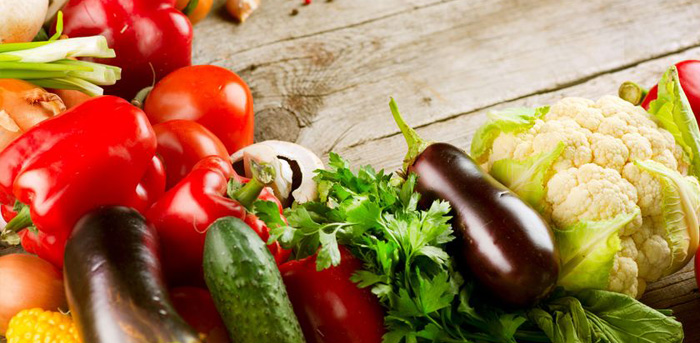There is not a week that goes by without a contradictory article telling us exactly how many vegetables we must eat to stay healthy. But is there an amount that’s right for everyone? Should we be aiming for a certain amount and what are the benefits of a high intake of vegetables and potential side effects of lots of vegetables?
The ranges that I have seen for vegetable intake recommendations are generally from 3-15 per day. That is a pretty significant range, but are there any signs to tell us if we are eating too few vegetables or even too many vegetables?
Signs you are not eating enough vegetables
Increased vegetable intake has been linked with the down regulation of numerous chronic diseases, particularly colon cancer. There are certain populations on earth that eat impressively high levels of fiber in their diet with the lowest rates of colon cancer. Correlation is not always causation but there does seem to be a link and those with family history of colon cancer it may be wise to increase the consumption of fibrous vegetables.
A good level of fiber specifically in the diet has been linked with the relief of IBS symptoms, although in some I have seen increased fiber increase IBS symptoms.
Low dietary fiber intake from vegetables has been linked with symptoms such as constipation and constipation associated issues such as haemorrhoids.
Signs that you might be eating too many vegetables
Plants have a number of self-defense techniques to help inhibit the digestive enzymes of an animal or to help poison any animal that attempts to eat it. Quite often those with impaired digestive systems will have a hard time digesting certain vegetables, particularly when served raw.
In my personal experience I have found those with significant digestive stress generally improve digestion when lowering their intake of certain non-starchy vegetables like cruciferous vegetables and focusing more on their intake of below ground vegetables or making sure that any of the non-starchy veg are thoroughly cooked. This may only be short term until the digestive system has been supported and improved, enabling you once again handle small amounts of toxins present in the vegetation that we eat and better able to deal with the indigestible fibers that are present in above ground vegetables.
Excess consumption of vegetables may cause symptoms like excess gas/wind, bloating and distension, constipation and constipation related issues.
Conclusion
Interestingly some of the healthiest people on the earth today range from people that eat nearly all their diet from roots, fruits and vegetables with very high levels of fiber in their diet and limited proteins and fats, whereas others that have very little fiber/vegetable intake in their diet but survive predominantly on protein and fat based foods. What is the similarity you might ask, given that both populations are some of the healthiest to walk the planet?
They eat whole foods and as close to their ancestral history as possible. Ultimately the amount of vegetables one eats is probably of little significance so long as the rest of their diet comes from healthy single-ingredient foods.
Ultimately you have to find what works for you, ensuring you go to the toilet at least once per day, forming easy to pass stools of similar consistency every time you go.
If you are experiencing excess gas and wind when you raise your vegetables, then lower them slightly until symptoms subside. On the other hand if you are not going regularly try an increase in vegetable intake and see if that helps move things along a little better, if not then it may be something else you need to focus on.
All in all I feel most do best on at least 2-3 feedings per day that consist of various types of vegetables, offering different nutrients and phytochemicals along the way. Looking at your plate and consuming 1/3 – 1/2 plant based foods. Occasional juicing may be of benefit to some, but not required for a healthy diet.
Use vegetables that have been shown to have probiotic value such as cultured vegetables like sauerkraut and kimchi, as these may have a positive influence on the health of your digestion and ultimately your overall health.
Let your body be the judge of how many you should eat, and start to pick up on the signs of poor digestion, need for veggies, a need to reduce vegetables, need to reduce raw vegetables and the body’s inability to digest certain vegetables optimally, particularly certain raw veg, and whether the body functions more optimally on below ground veg, comparative to above ground veggies or cooked vs raw.
Learn to love vegetables, but also learn to know whether those vegetables love you.
Contact Steve Grant Health
To learn more out how Steve Grant Health can assist you on your journey, please fill out the enquiry form below.
Please note that depending on your specific circumstances and goals, Steve may recommend that you work with one of the specialist practitioners within his network of trusted professionals.
If you have been referred by a clinician, please complete the form and ensure that you state who has referred you or have your practitioner email Steve direct to make a referral that way.
Click the button below to open the client enquiry form:
[widgetkit id=”643″]


